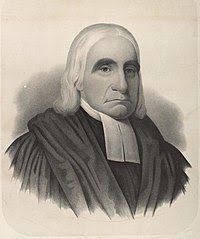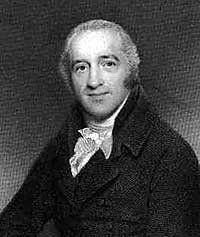
Over the years certain sayings have helped to clarify my thinking and have had a formative influence in my life. One such saying comes from Daniel Rowland (1711-90) who said that throughout his life he had been seeking to learn four lessons: ‘to repent, without despairing; to be angry without sinning’.
The fact that he acknowledged that he had been seeking to learn these lessons is itself very helpful. He knew he had not arrived and was still a disciple. That kind of honest realism is an encouragement to those of us who feel the same way and know our weakness. But equally helpful is the beautifully balanced way with which Rowland viewed the Christian life.
To repent without despairing
Like Luther, Rowland realised that the whole of the Christian life is one of repentance. He also recognised that the continuing presence of sin in the believer could crush the spirit and induce despair. But true repentance means that, like the prodigal son, having realised and confessed our sinfulness (including the disobedience and deceit), and knowing our danger, we return to God.
Repentance means coming to our senses and taking action. That is why it is so different from remorse, which makes us passive, broody and withdrawn. To repent is to return to our heavenly Father because we recognise his abundant mercy. What made the prodigal son return to his father was not just the misery and the unmasking of his condition, but the conviction that his father was merciful. It is the mercy of God, not the condemnation of the law, that causes us to repent without despairing. The cross is the great attractive power. What a blessed thing it is to realise this!
To believe without presuming
Rowland knew about the danger of presumptuous faith. He had seen it during the great revivals in Wales. It happens when a person’s ‘faith’ is either a matter of the intellect only (without the engagement of the heart) or an emotional, romantic feeling (without doctrinal grounding).
True faith, however, is the response of the whole self (mind, heart and will) to the Lord Jesus Christ. It means receiving, responding to, and resting on, Christ alone for salvation. It is Christ who saves, not faith.
Faith is coming out of ourselves into Christ. We believe into him, into his righteousness, into his holiness, into his redemption. Sin turns us in on ourselves; it makes us introverted and introspective. But faith enables us to look out to, and come into, the Lord Jesus Christ. And because it is the gift of God, it silences self boasting and gives all the glory to God.
That is why it overcomes the world. So we do not speak so much about faith; we speak rather about the Saviour. What an important message that is for us all!
To rejoice without levity
Rowland knew about the danger of frivolous, superficial excitement in Christian gatherings. He was concerned lest people’s emotions should be worked up by influences other than the Holy Spirit speaking through the Word.
But at the same time he expected people who had been deeply moved by the truth to rejoice, and to express their joy in ways that were natural to them. He replied to the wealthy Englishman, John Thornton, who disliked the practice of jumping during the revival. ‘You English blame us, the Welsh, and speak against us and say “Jumpers! Jumpers!”’ But we, the Welsh, have something also to allege against you, and we most justly say of you, “Sleepers! Sleepers!”
Jesus told his disciples to rejoice because their names were written in heaven, and this element of joy ought to characterise our Christian living. But let it be produced by the truth, and expressed in ways that are natural to us, helpful to others, and, above all, pleasing to God.

To be angry without sinning
We may be theoretically aware of the difference between righteous and unrighteous anger. Yet in practice the distinction often disappears. Sometimes preachers launch into tirades against members of their congregations, scarcely concealing the identity of the people concerned, and claim righteous anger as their justification for doing so.
But the real reason is hurt pride! Sometimes Christians express ‘righteous anger’ about the sins of others and register shocked horror and anguish. But in reality they are simply speaking and hearing evil of others.
Charles Simeon had some wise words to say about calumny: ‘The longer I live, the more I feel the importance of adhering to the rules which I have laid down for myself in relation to such matters. First. To hear as little as possible what is to the prejudice of others. Second. To believe nothing of the kind till I am absolutely forced to it. Third. Never to drink into the spirit of one who circulates an ill report. Fourth. Always to moderate, as far as I can, the unkindness which is expressed towards others. Fifth. Always to believe, that if the other side were heard, a very different account would be given of the matter’.
But at the same time there are matters to be righteously angry about and we need to have a true zeal for the honour and glory of the Lord’s name. To be silent in the presence of blasphemy or gross sin is cowardice, not discretion. How much we need the grace of discernment!
These words of Daniel Rowland have helped me over the years and I am still seeking by God’s grace not only to take them to heart but also to put them into practice. I trust they will be of help to others also.



